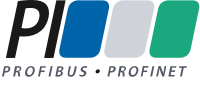Interest in a shared platform for exchanging robotics experience and information is still high, a fact reflected by the demand seen at this year’s ‘Get Together for Robotics’ conference. This event rep-resented the entire spectrum of the industry, offering users, manufacturers, universities and associations a shared stage for both networking and exchanging experience & information on opportunities & challenges in the field of robotics. This year, 130 participants gathered in Erlangen, Germany on October 23 and 24, 2024 to discuss the latest developments in the industry. They were also joined by many online participants. The ‘Get Together for Robotics’ event was organized by PI (PROFIBUS & PROFINET International), which is also responsible for the development, expansion and maintenance of the data and command interface standard known as the SRCI (Standard Robot Command Interface).
Trends and innovations in robotics were in the focus of the event, which this year was held over the course of two days for the first time. In addition to robotics experts, PLC manufacturers and startups, numerous users (around one third of the participants) and experts from universities were represented.
Highlights of the event included two round table discussions by top-tier participants. At the “Trends in Robotics” executive round table, Reinhold Gross (CEO KUKA Robotics), Mladen Milicevic (CEO Unchained Robotics), David Reger (CEO Neura Robotics) and Helmut Schmid (Chairman of the Board of the German Robotics Association) discussed both future potential and the challenges of robot technology.
Reinhold Groß, CEO of KUKA Robotics:
"The integration of hardware and software components into automation solutions requires the coopera-tion of an increasing number of participants. To ensure these solutions are both user-friendly for end customers and secure, establishing standards for seamless communication is essential. As a supplier of components and solutions, we view the promotion of these standards as a key part of our role."
Mladen Milicevic, CEO and Co-Founder of Unchained Robotics:
“In the past, it was mid-sized companies in Germany in particular who lived according to the mantra ‘Never change a running system,’ as short-term improvements could be achieved from year to year through excellent processes and lean management. Short-term thinking and the small amount of time figured into the amortization calculation of these companies have prevented them from seeing past the end of their own noses, though -both strategically and with a long-term view - and seriously engag-ing with robotics and automation.”
David Reger, Neura Robotics GmbH:
“Lots of effort is being put into keeping up the hype around humanoid robotics right now, but the public is now waiting to see exactly what kinds of meaningful work robots will be able to handle on a day-to-day basis—regardless of whether they walk on two legs or roll around on wheels. Attention is therefore shifting to who can train cognitive, intelligent robots in the most versatile way possible and has a plat-form where a wide variety of different robots can quickly learn from one another.”
Helmut Schmid, German Robotics Association:
“Things have never been as exciting in the field of robotics as they are now, driven by the possibility of combining and using AI and robotics. These key technologies can contribute to ensuring prosperity and progress in Germany. To utilize the full potential of AI and robotics, though, there needs to be a collabo-rative effort by politicians, scientists, employee representatives and companies.”
At the second round table discussion, experts Bertus de Groot (Lead Application Engineer at YASKAWA Europe), Kasper Døring (Technology Officer for COBOT Software at Universal Robots), Günter Heinendirk (Manager Digital Transformation at STÄUBLI TEC-SYSTEMS GMBH) and Wolfgang Lienke (Vice President of JAKA Europe) reported on practical experience with the SRCI and its importance to both robot manufacturers and their customers. What is especially exciting is that all the robot manufacturers participating in this round table already support the new SRCI data interface.
SRCI is an open standard, a fact which explicitly encourages manufacturers to contribute to the work being done on the data interface. Seven manufacturers have already introduced products with the interface to the market, and other companies have announced products still to be launched this year, so the number of applications and the amount of practical experience will continue to grow. User presentations on the practical application of the SRCI and experience with the still-nascent data interface also drew a great amount of interest.
Background information: Three years ago, work began on the standardized SRCI data interface (Standard Robot Command Interface) at PI (PROFIBUS & PROFINET International). With this interface, robot programs can be written entirely to the PLC by calling robot functions and having the required robot status information be fed back to the PLC. The interface is the basis for easier robot use and therefore more flexible production. For the user, this means that considerably less detailed knowledge about the respective robot manufacturer and the handling and functional scope of the hand-held robot control unit is required. Both the costs and time involved are reduced considerably as a result.
